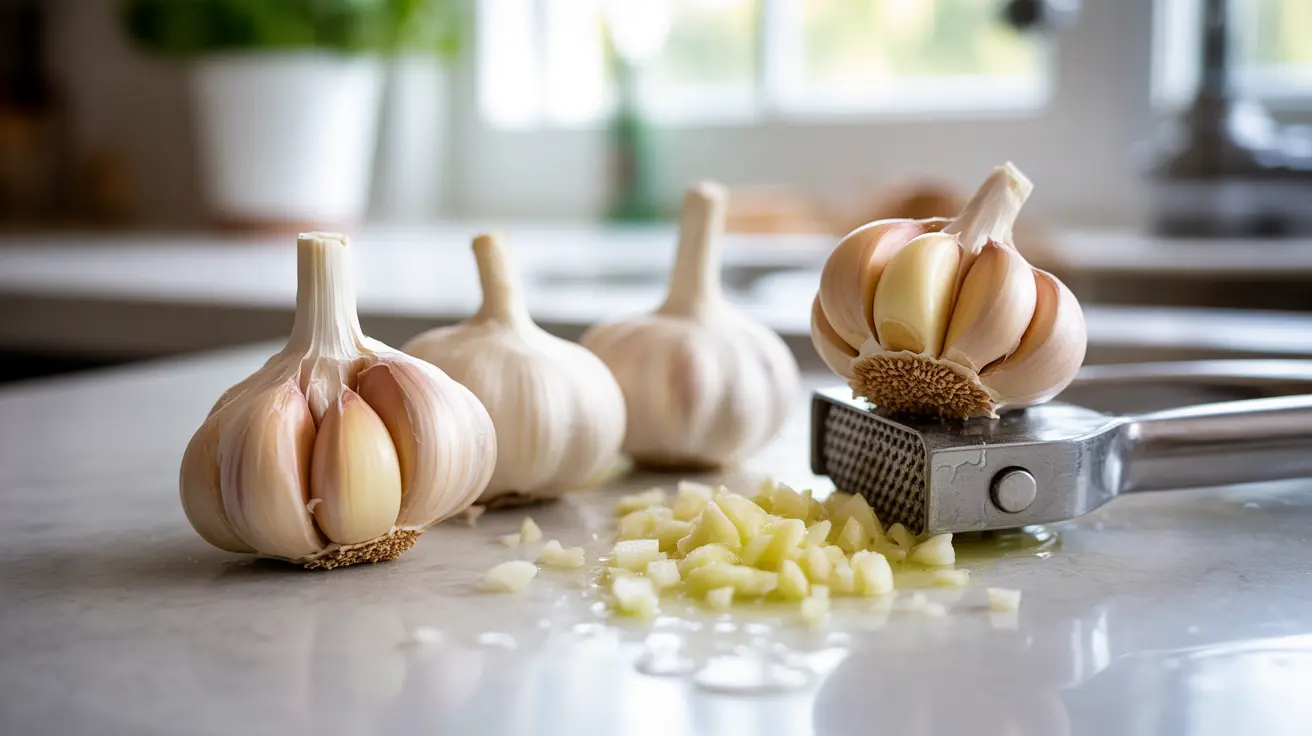For centuries, garlic has been revered not just for its culinary uses but also for its remarkable medicinal properties. Among its many health benefits, garlic's potential to help manage high blood pressure has garnered significant attention from both medical researchers and those seeking natural alternatives for cardiovascular health.
If you're wondering "is garlic good for high blood pressure," the answer is supported by scientific research. This powerful herb contains compounds that can help promote healthy blood pressure levels and overall heart health. Let's explore how garlic might benefit those with hypertension and the best ways to incorporate it into your health routine.
How Garlic Affects Blood Pressure
Garlic's blood pressure-lowering effects are primarily attributed to its active compound, allicin. When garlic is crushed or chopped, it releases this sulfur-containing compound that helps relax blood vessels and promote better blood flow. This vasodilation effect can contribute to lower blood pressure readings.
- Support nitric oxide production
- Help reduce inflammation
- Act as natural antioxidants
- Support overall cardiovascular health
Different Forms of Garlic for Blood Pressure Management
Raw Garlic
Fresh, raw garlic provides the highest concentration of active compounds. For maximum benefit, crush or chop garlic cloves and let them sit for 10-15 minutes before consuming to allow allicin formation.
Aged Garlic Extract
This specialized form of garlic has shown promising results in clinical studies. The aging process creates unique compounds that may be even more effective for blood pressure management than raw garlic.
Garlic Powder and Supplements
These convenient options can be effective when standardized for allicin content. However, quality and potency can vary significantly between products.
Recommended Dosage and Usage
- Raw garlic: 1-2 fresh cloves daily
- Aged garlic extract: 600-1,200mg daily
- Garlic powder supplements: As directed on the product label, typically 900mg daily divided into doses
Safety Considerations and Potential Side Effects
- Increased bleeding risk, especially when combined with blood thinners
- Digestive discomfort in some individuals
- Garlic breath and body odor
- Potential interactions with certain medications
Frequently Asked Questions
Is garlic effective for lowering high blood pressure compared to prescription medications?
While garlic can help lower blood pressure, it's typically not as potent as prescription medications. Studies show garlic may reduce systolic blood pressure by 5-8 mmHg and diastolic by 2-5 mmHg. It's best used as a complementary approach alongside prescribed treatments rather than a replacement.
How much garlic should I take daily to help reduce my blood pressure?
The recommended daily intake varies by form: 1-2 fresh garlic cloves, 600-1,200mg of aged garlic extract, or about 900mg of garlic powder supplements. Always start with a lower dose and increase gradually while monitoring your response.
What form of garlic (raw, powder, aged extract) is best for managing high blood pressure?
Aged garlic extract has shown the most consistent results in clinical studies, followed by raw garlic. However, any form can be beneficial when used properly. Choose based on your preference and lifestyle, considering factors like convenience and tolerance.
Can garlic supplements cause any side effects or interact with blood pressure medications?
Yes, garlic can interact with certain medications, particularly blood thinners and blood pressure medications. Common side effects include bad breath, body odor, digestive issues, and increased bleeding risk. Always consult your healthcare provider before starting garlic supplements.
How does garlic help lower blood pressure and improve heart health?
Garlic helps lower blood pressure through multiple mechanisms: it promotes blood vessel relaxation through allicin release, increases nitric oxide production, reduces inflammation, and provides antioxidant benefits. These combined effects support overall cardiovascular health.
While garlic shows promise as a natural approach to supporting healthy blood pressure levels, it's essential to view it as part of a comprehensive treatment strategy that includes proper diet, regular exercise, and prescribed medications when necessary. Always consult with your healthcare provider before making significant changes to your blood pressure management routine.




